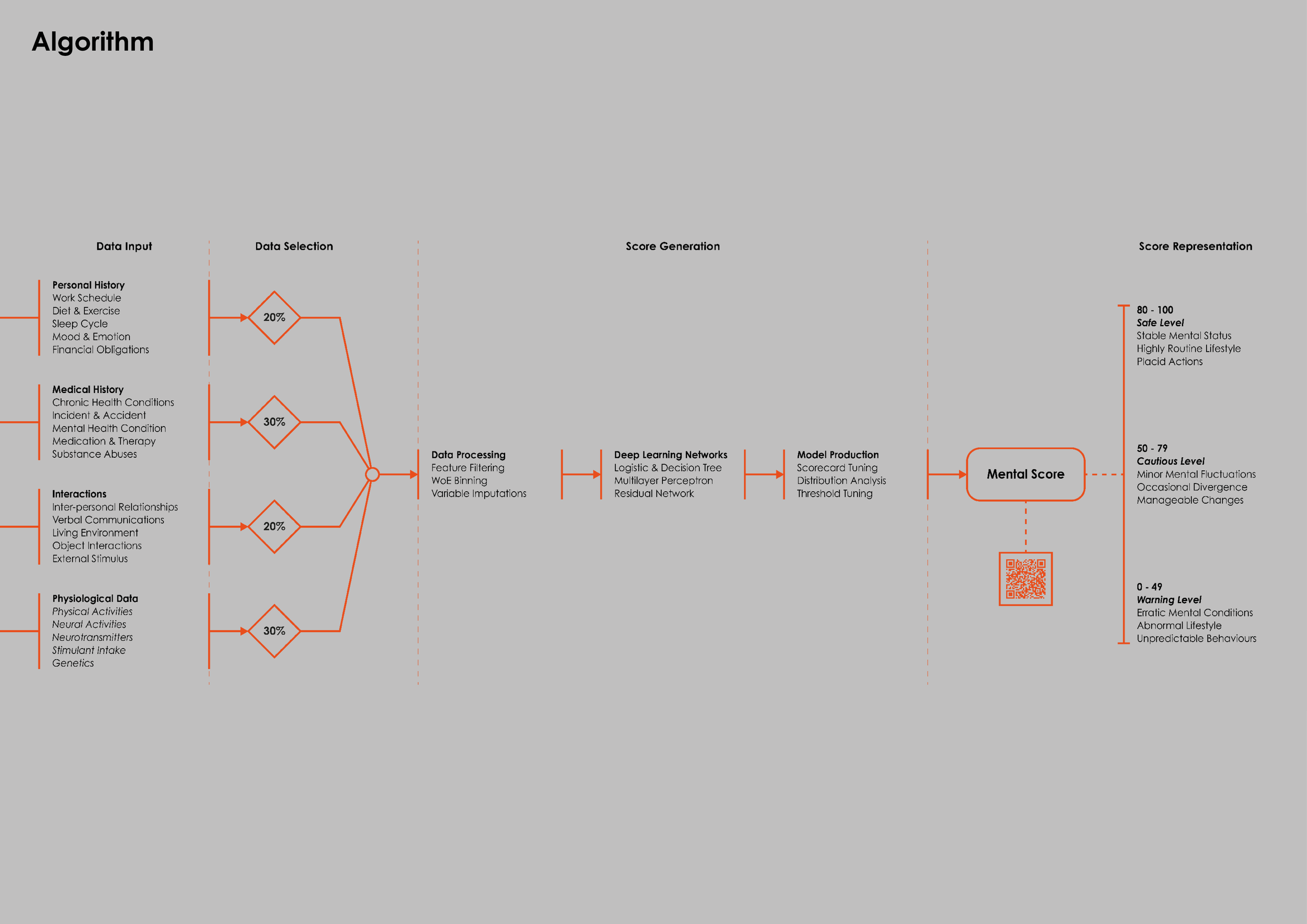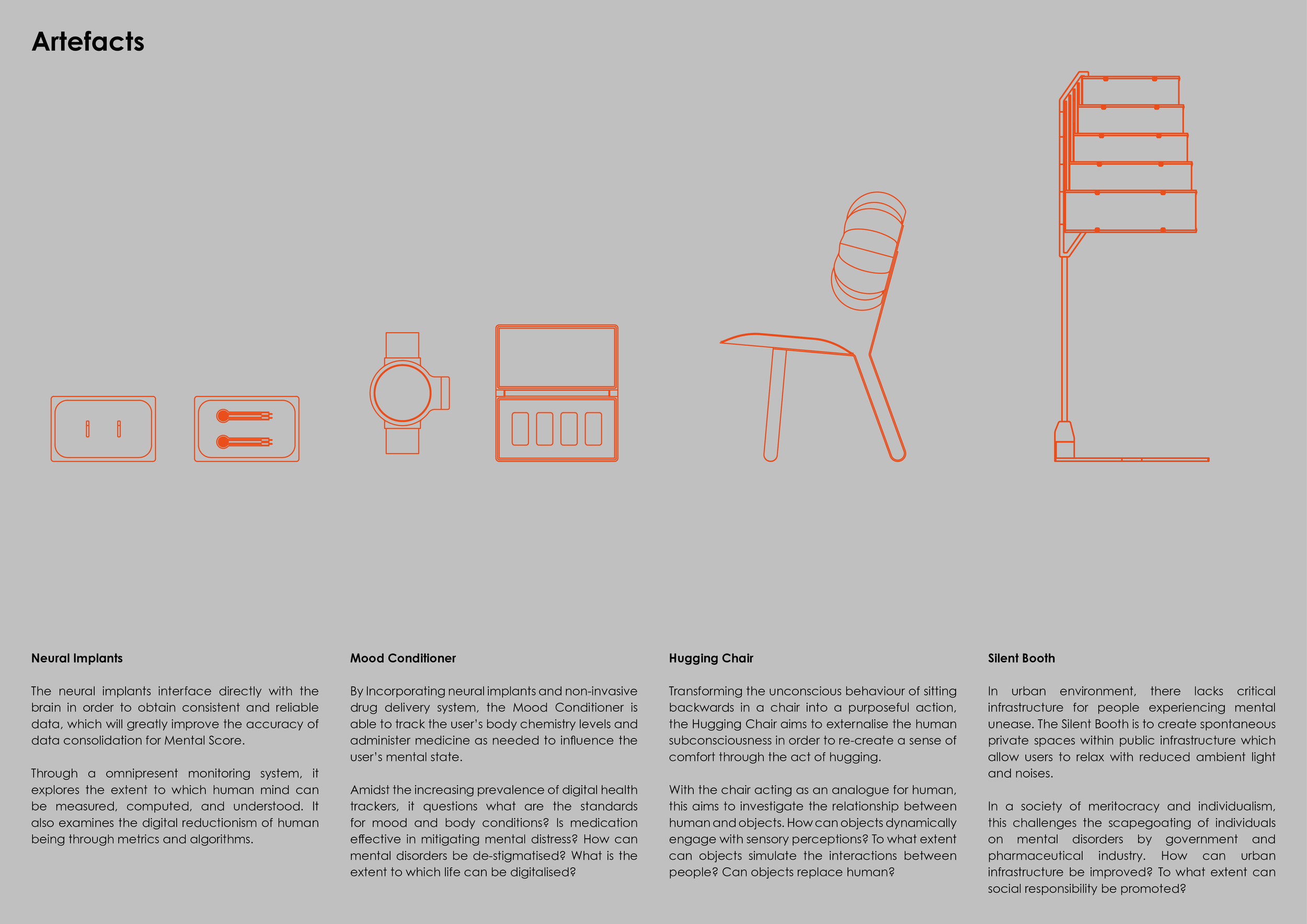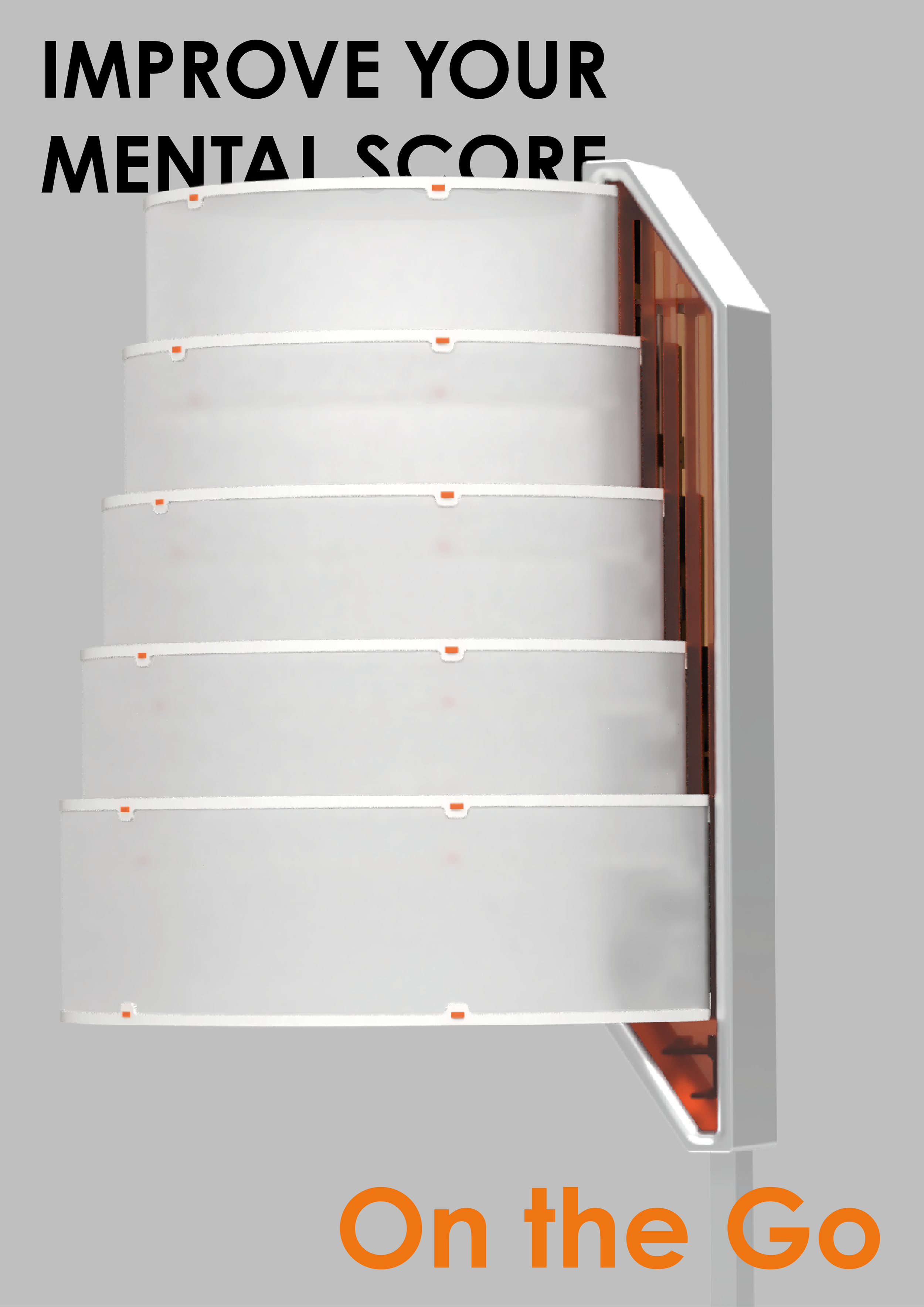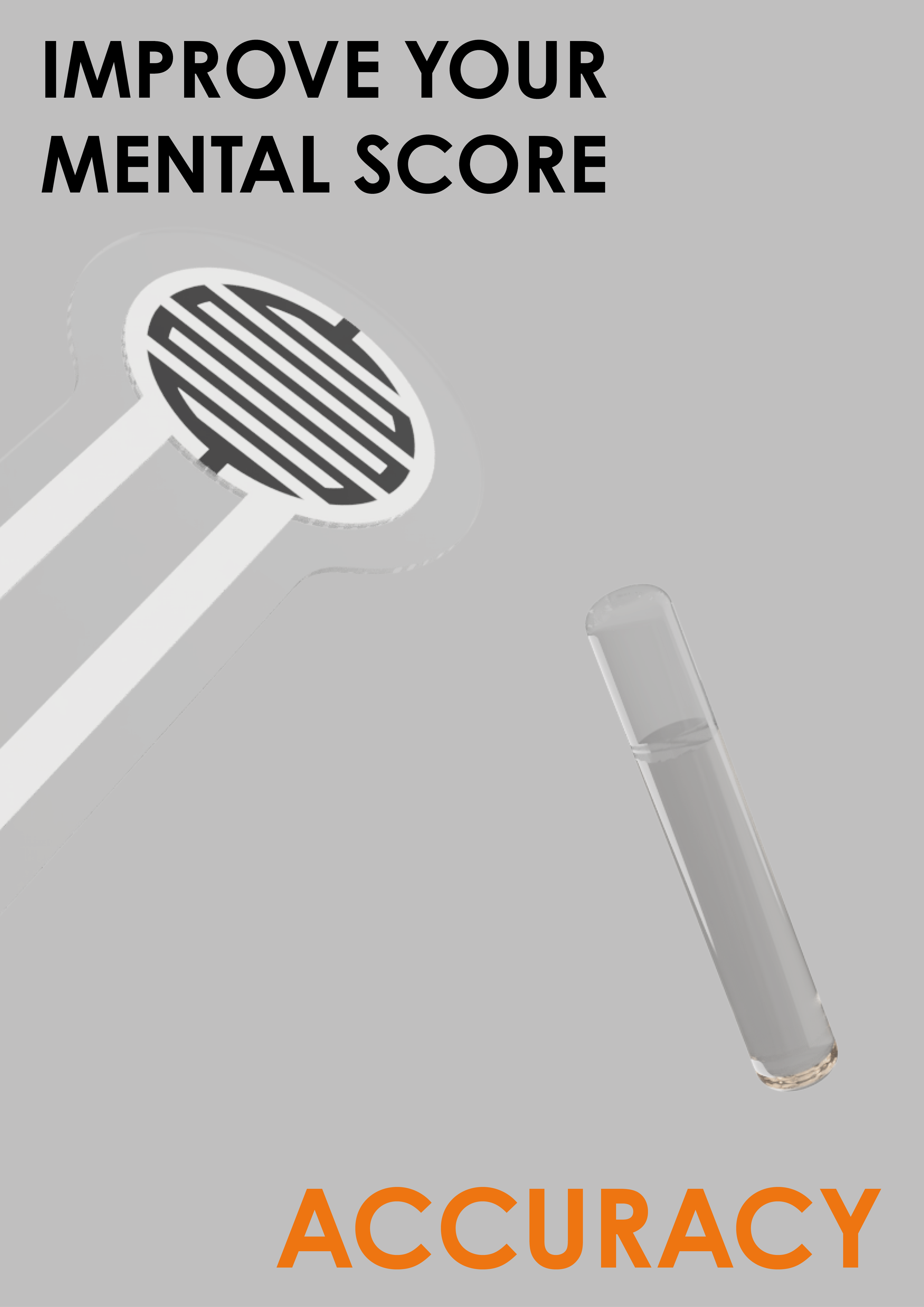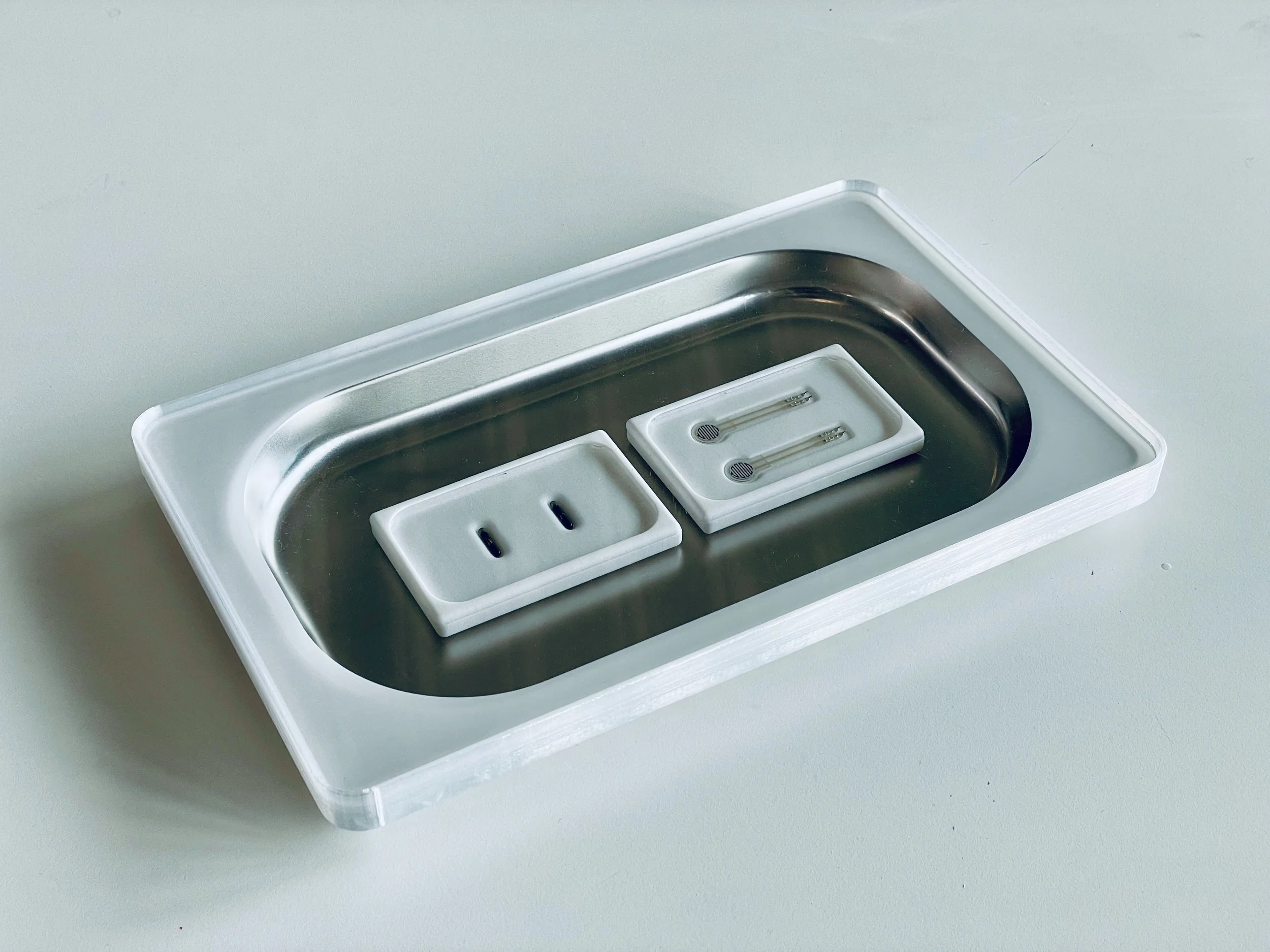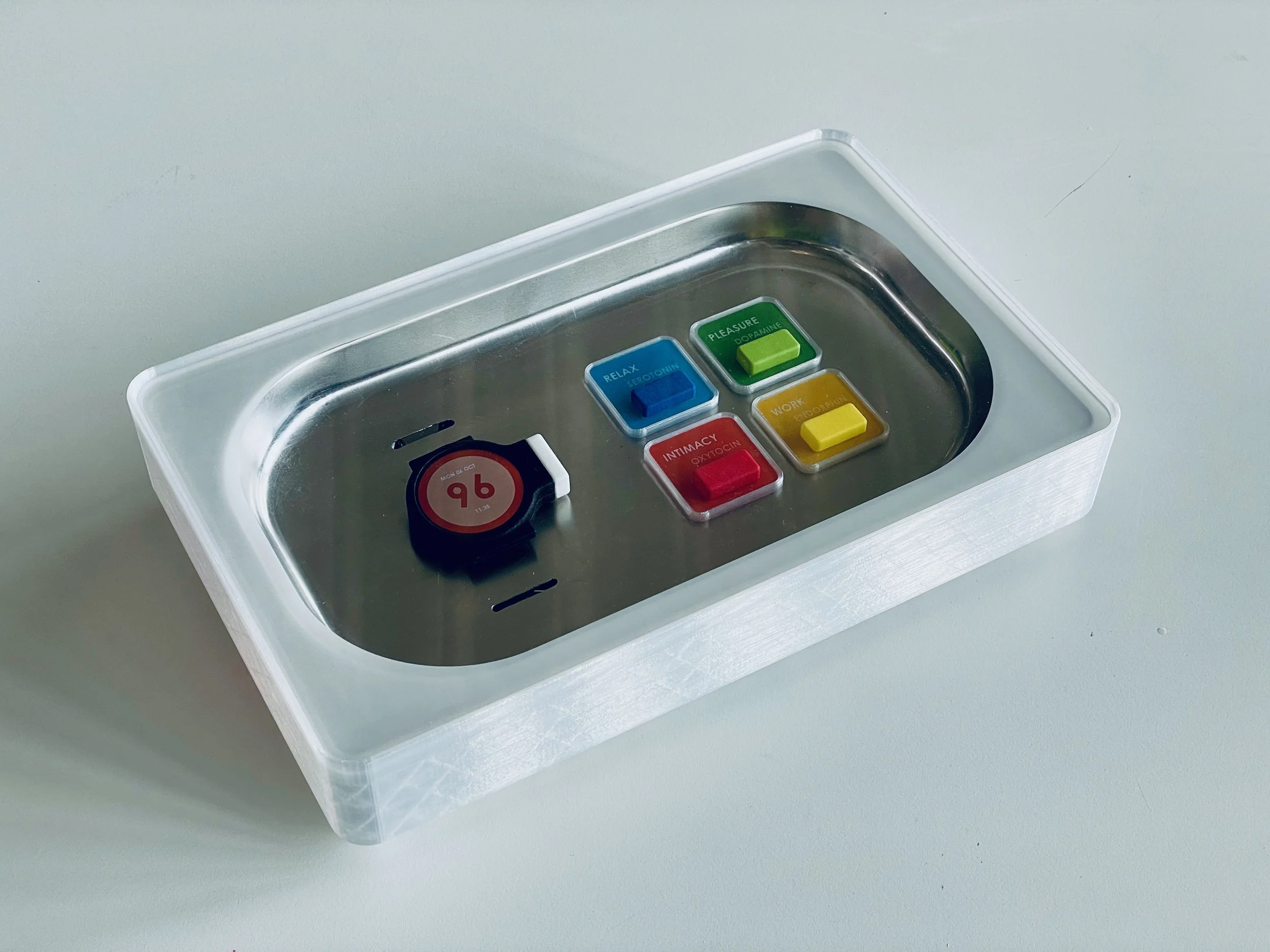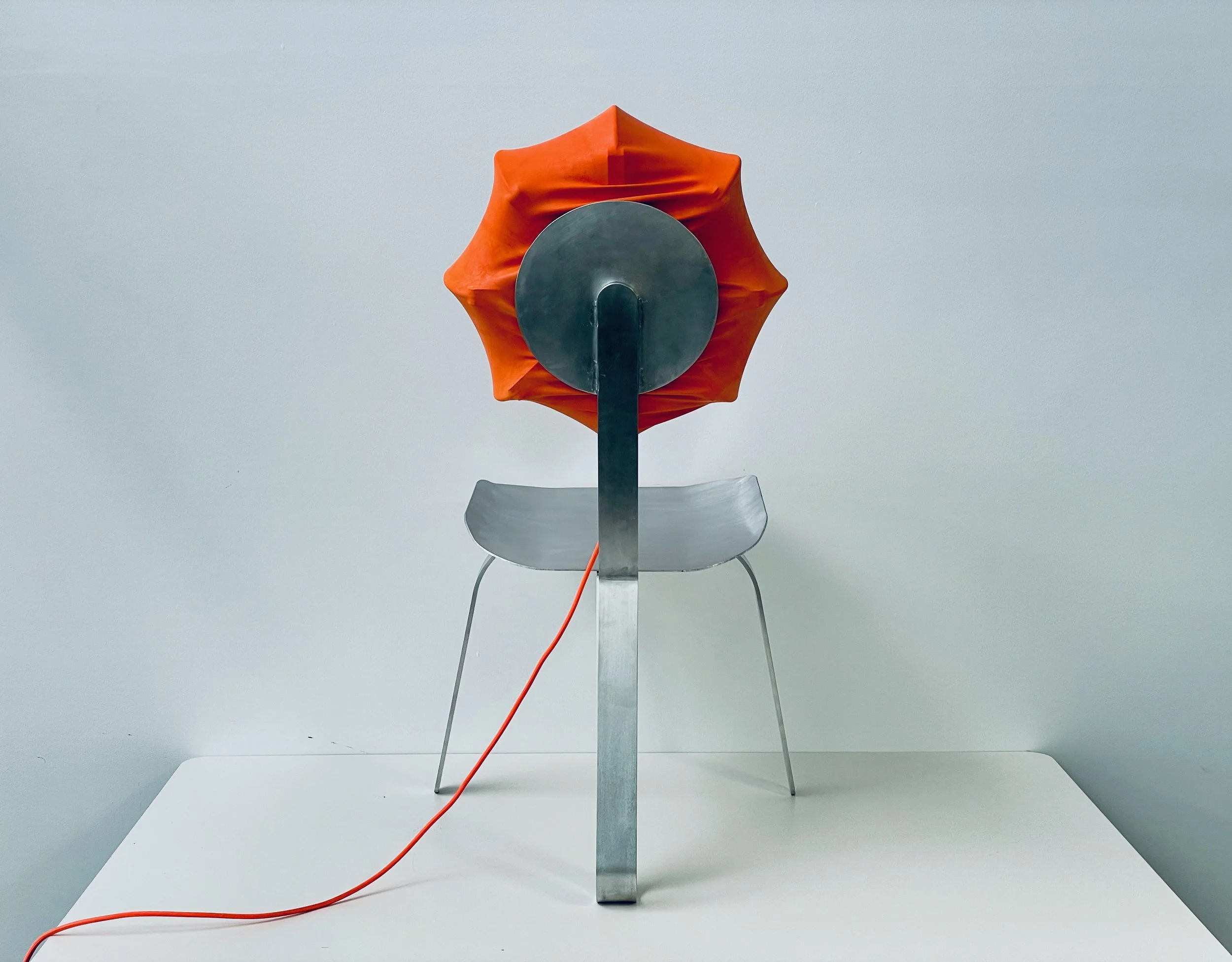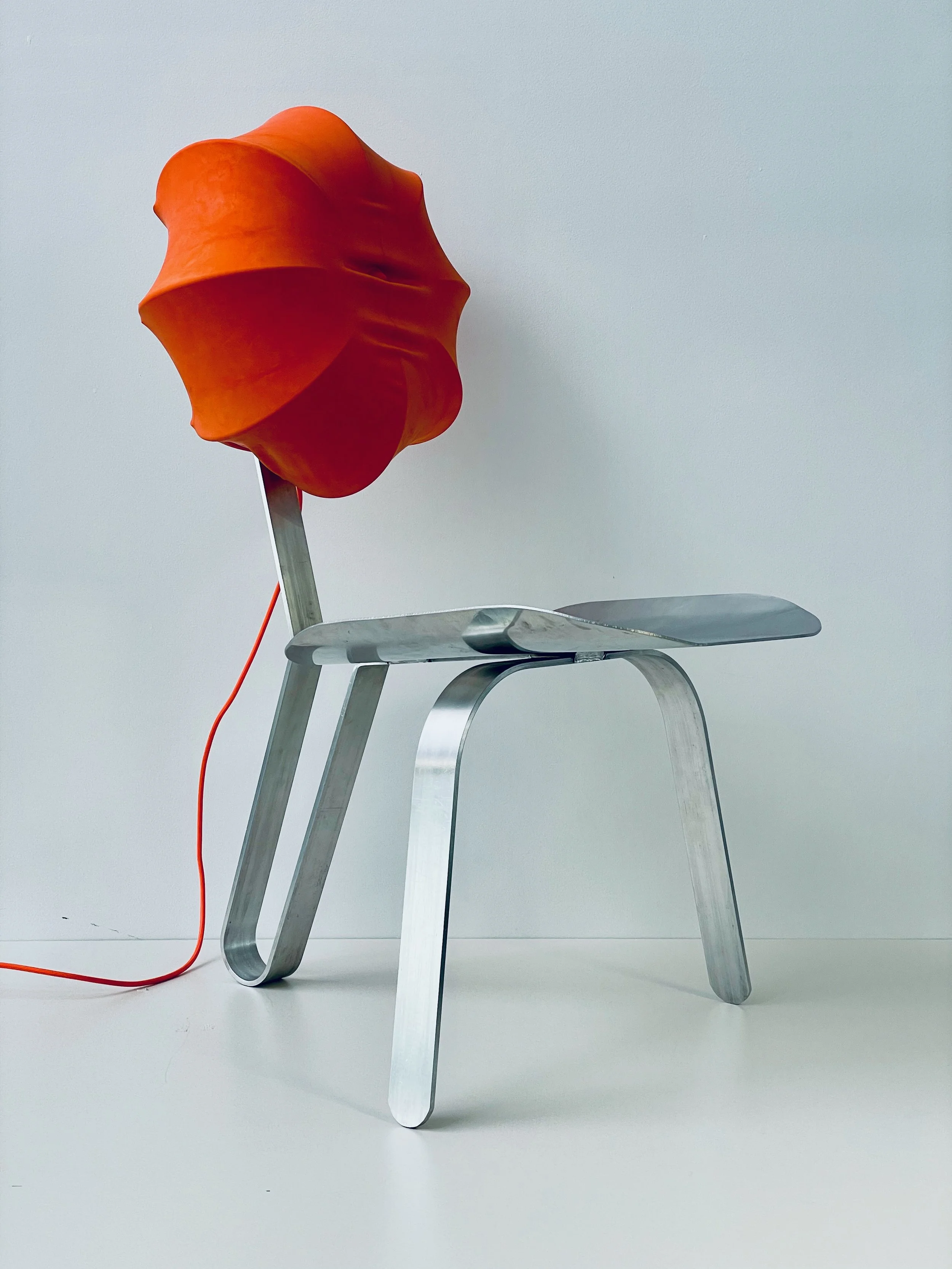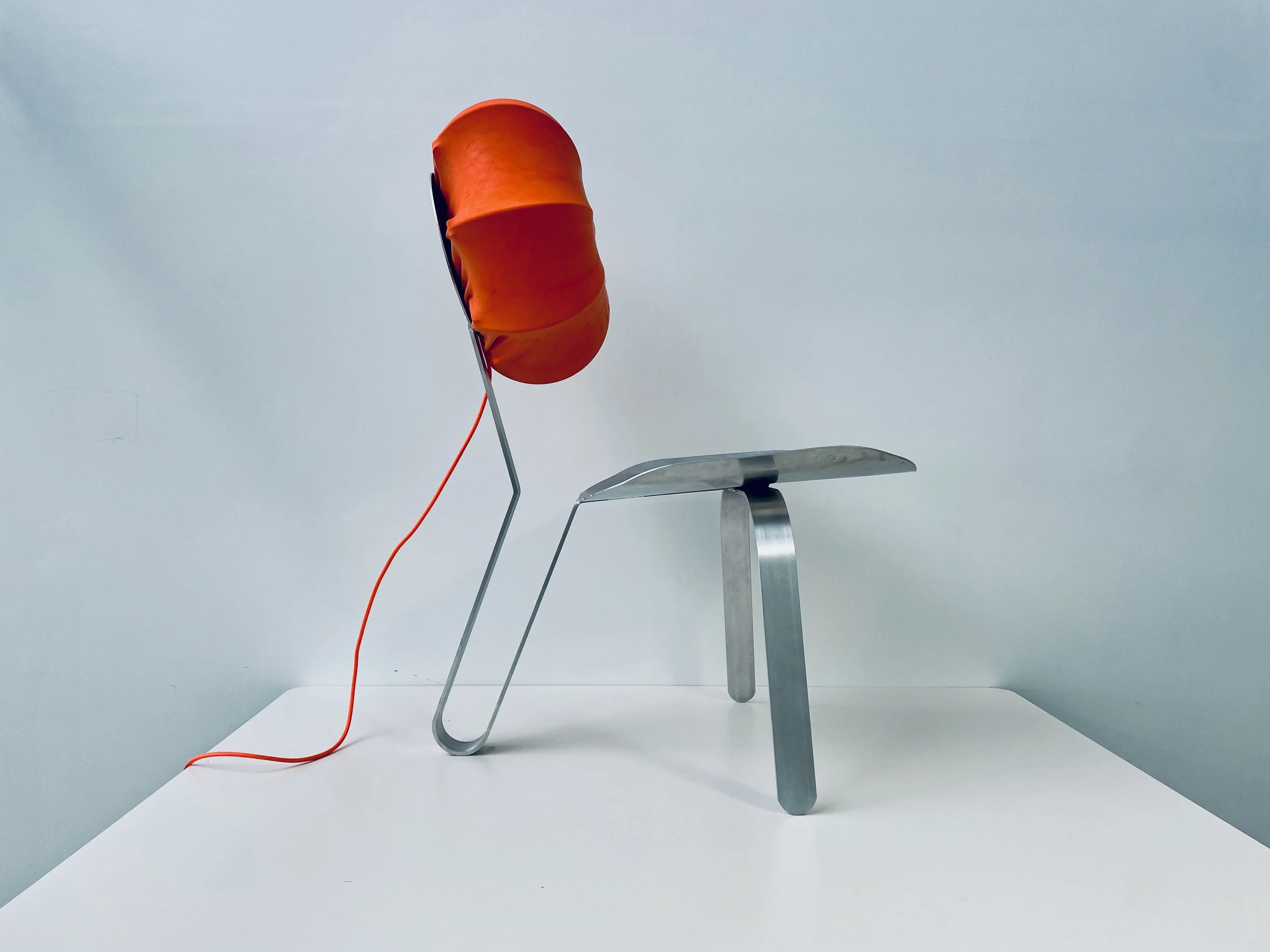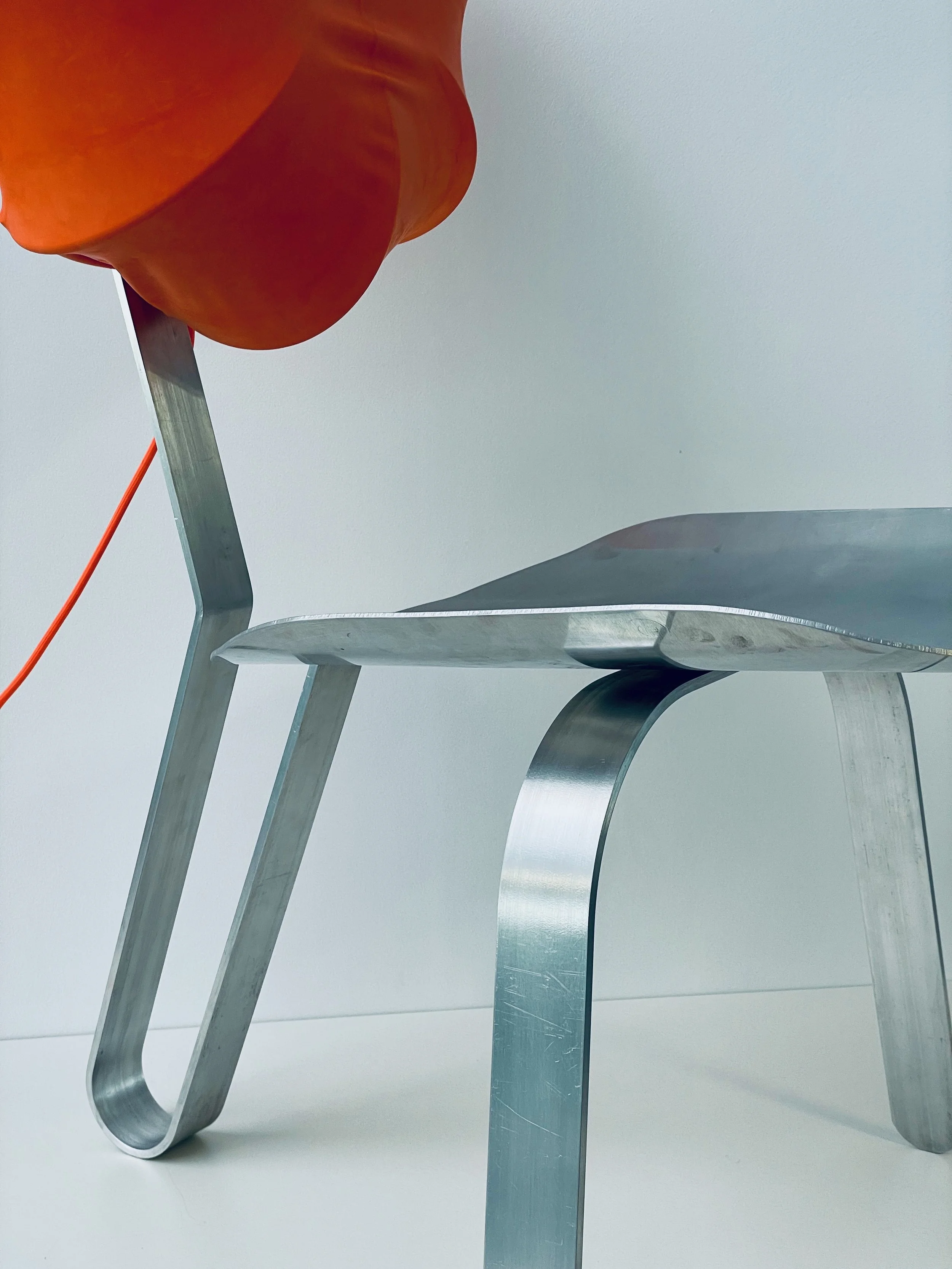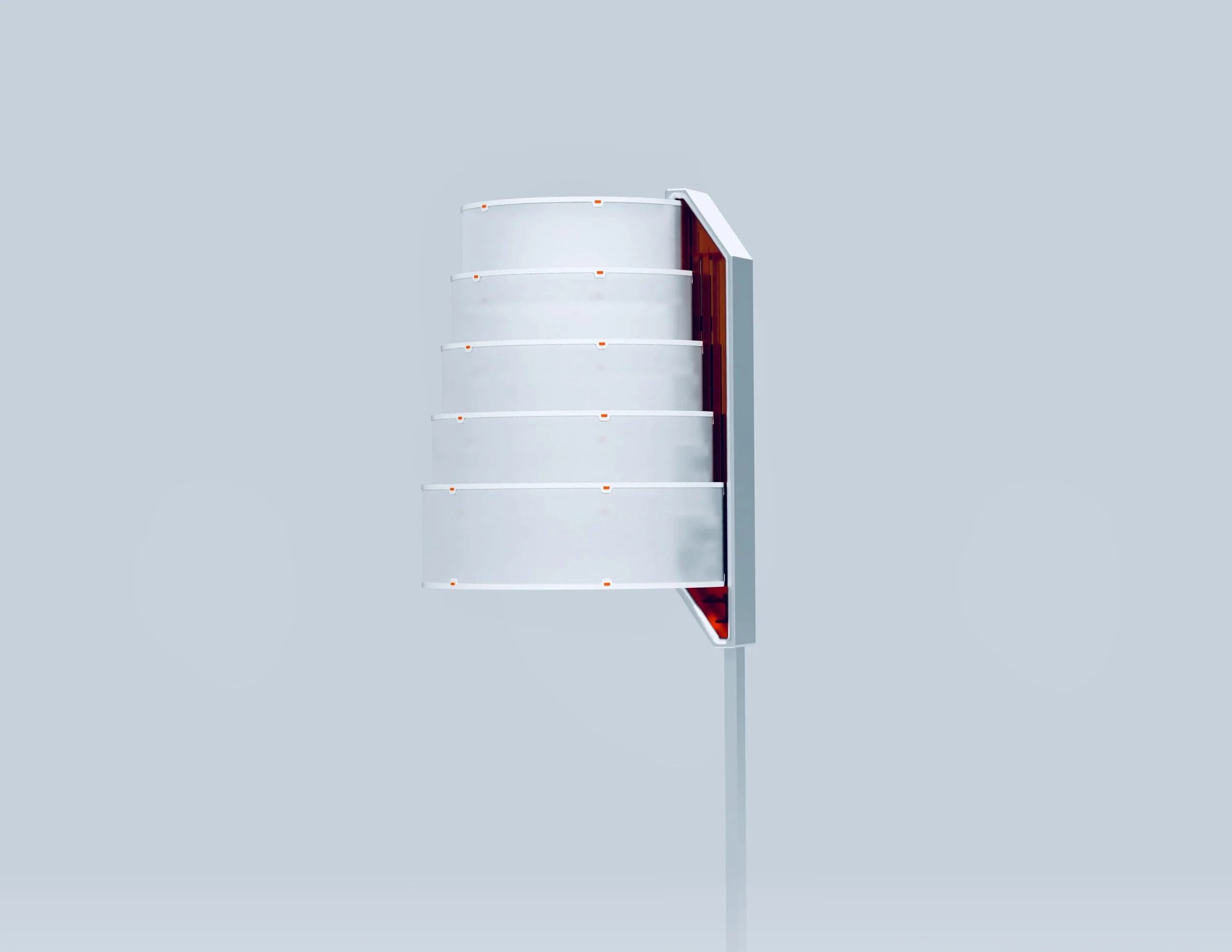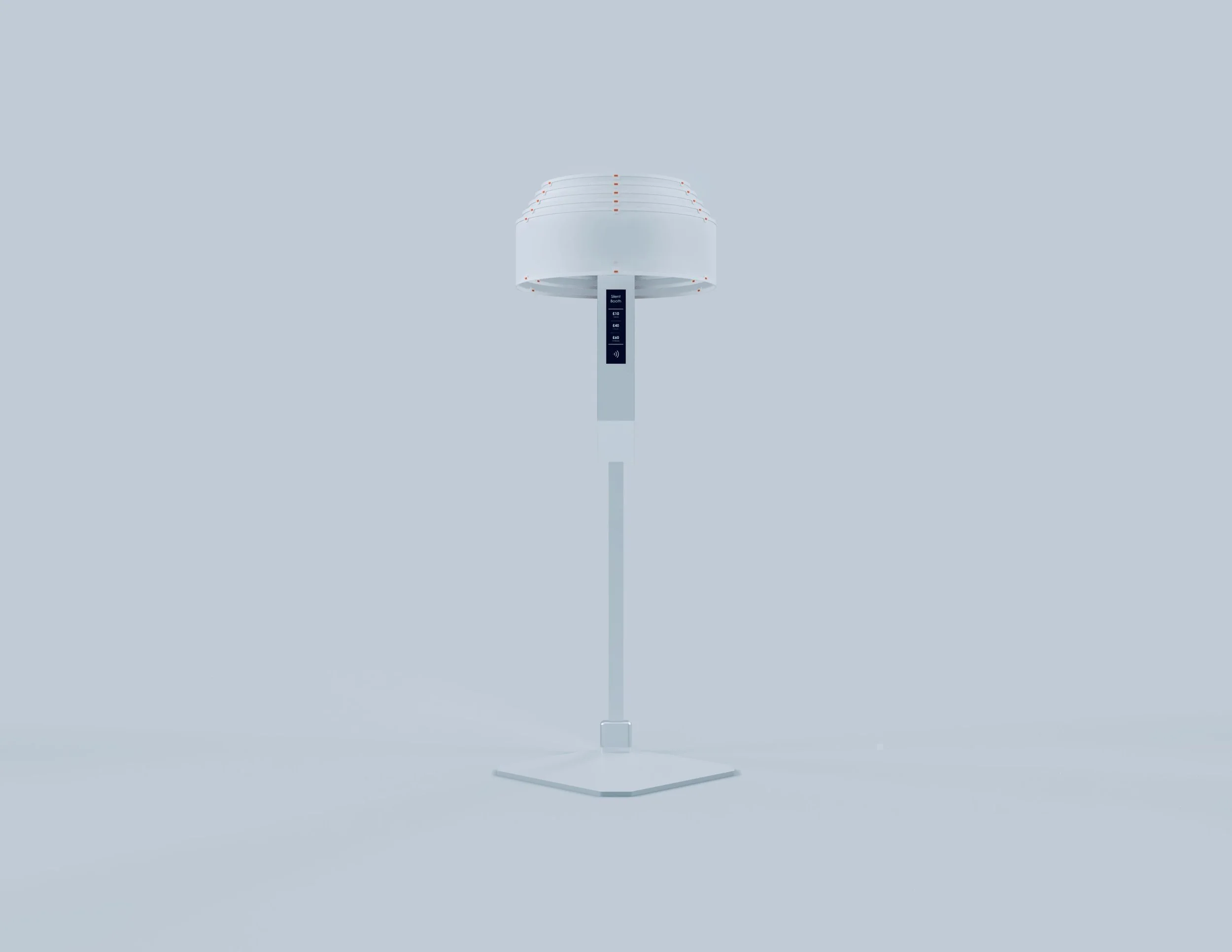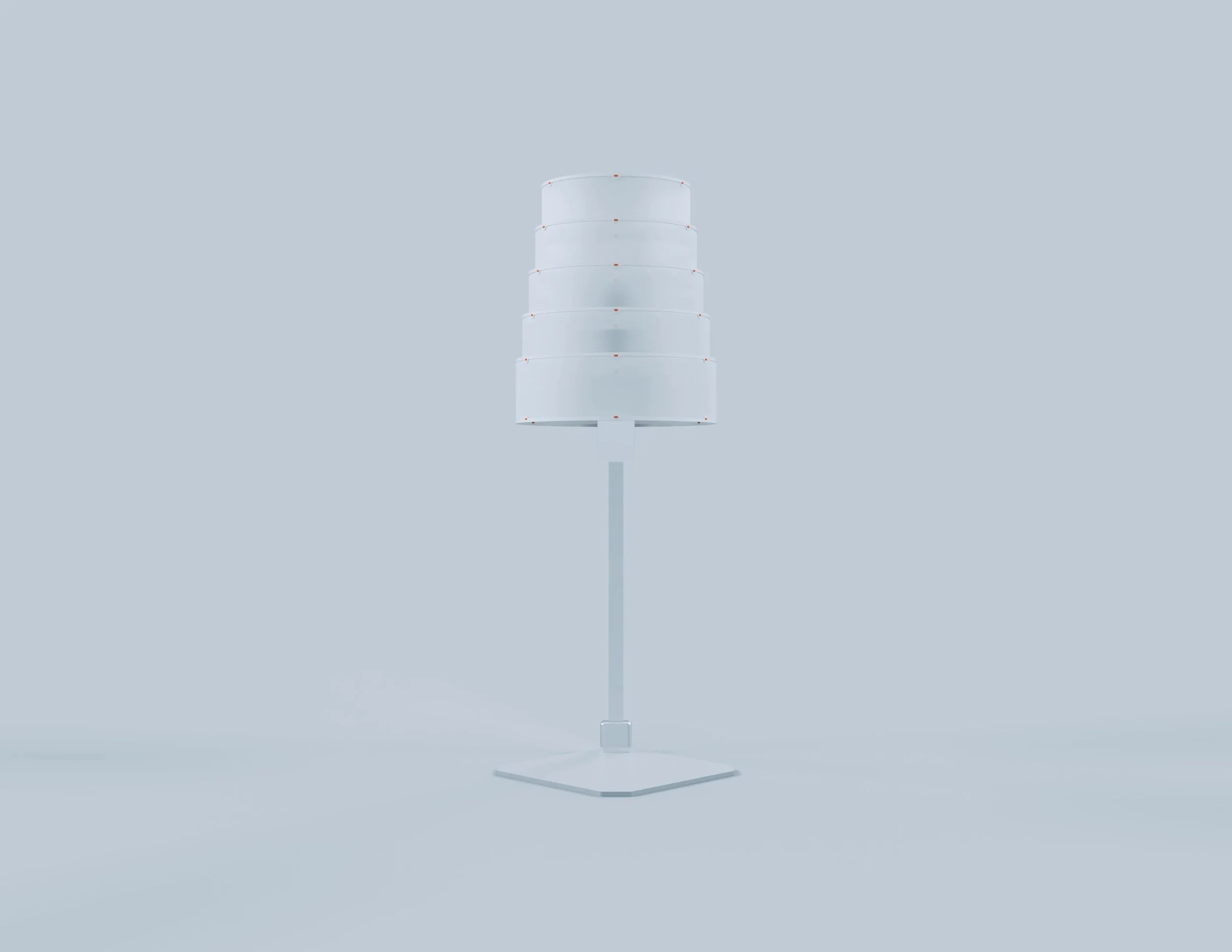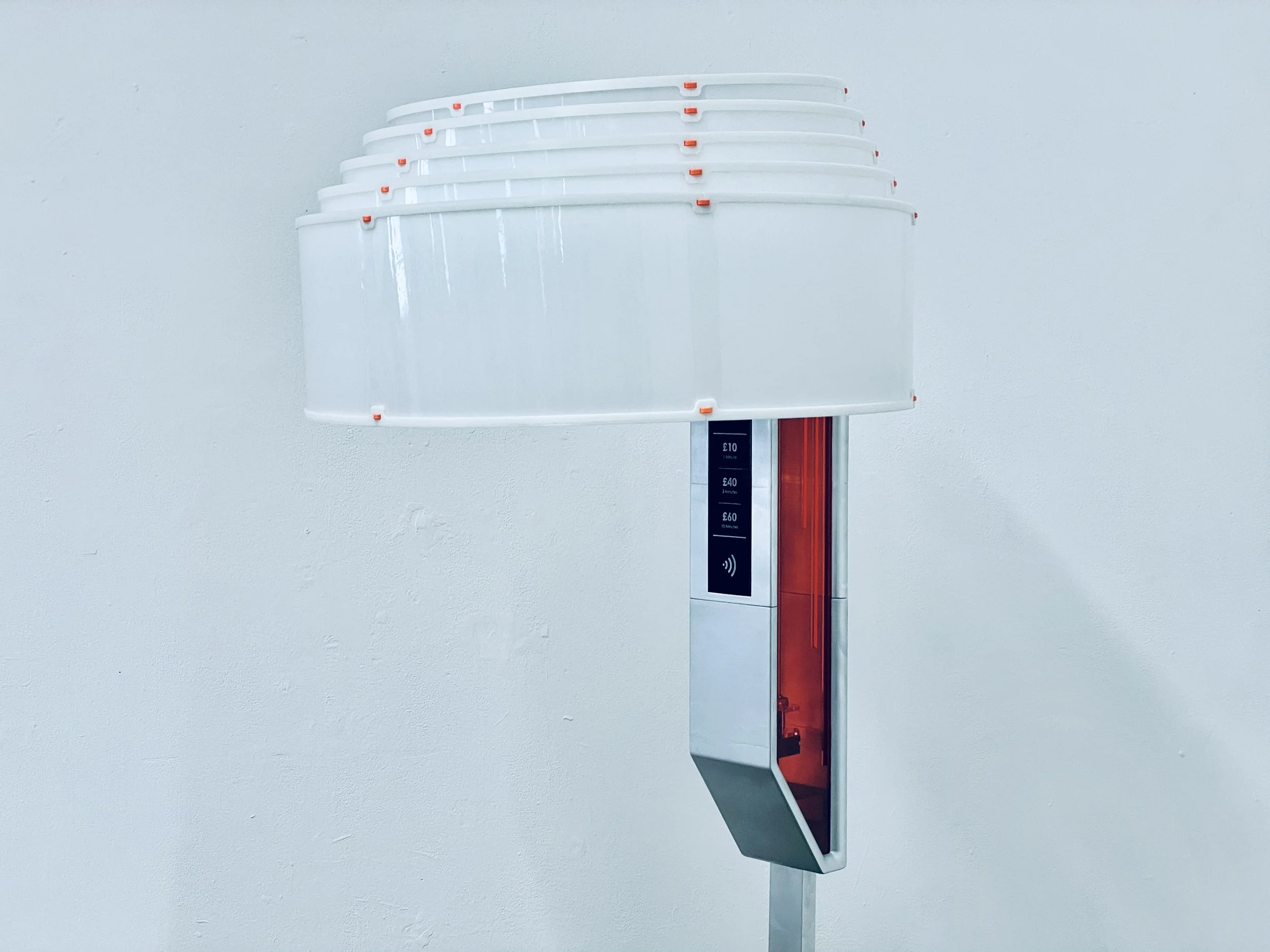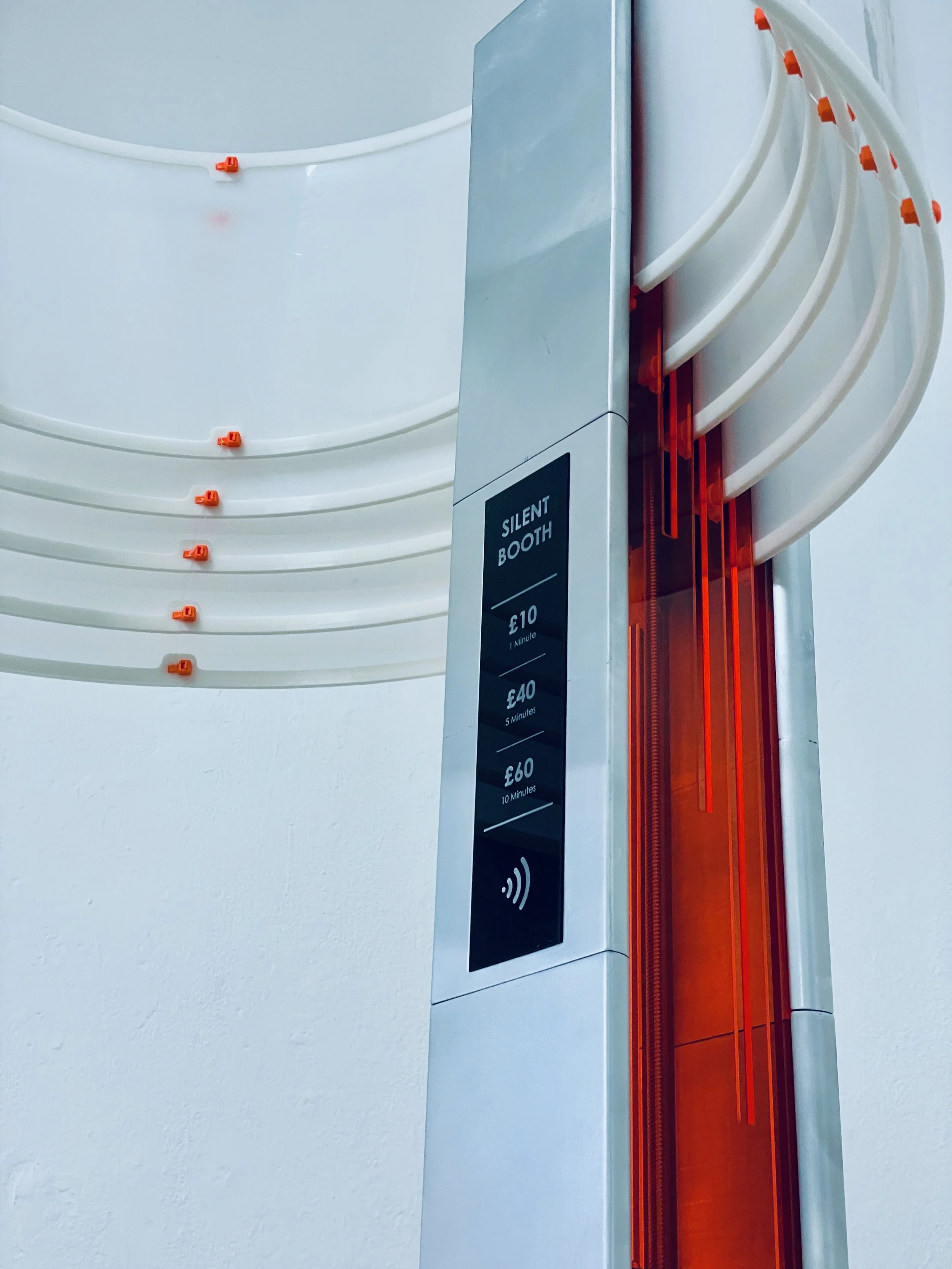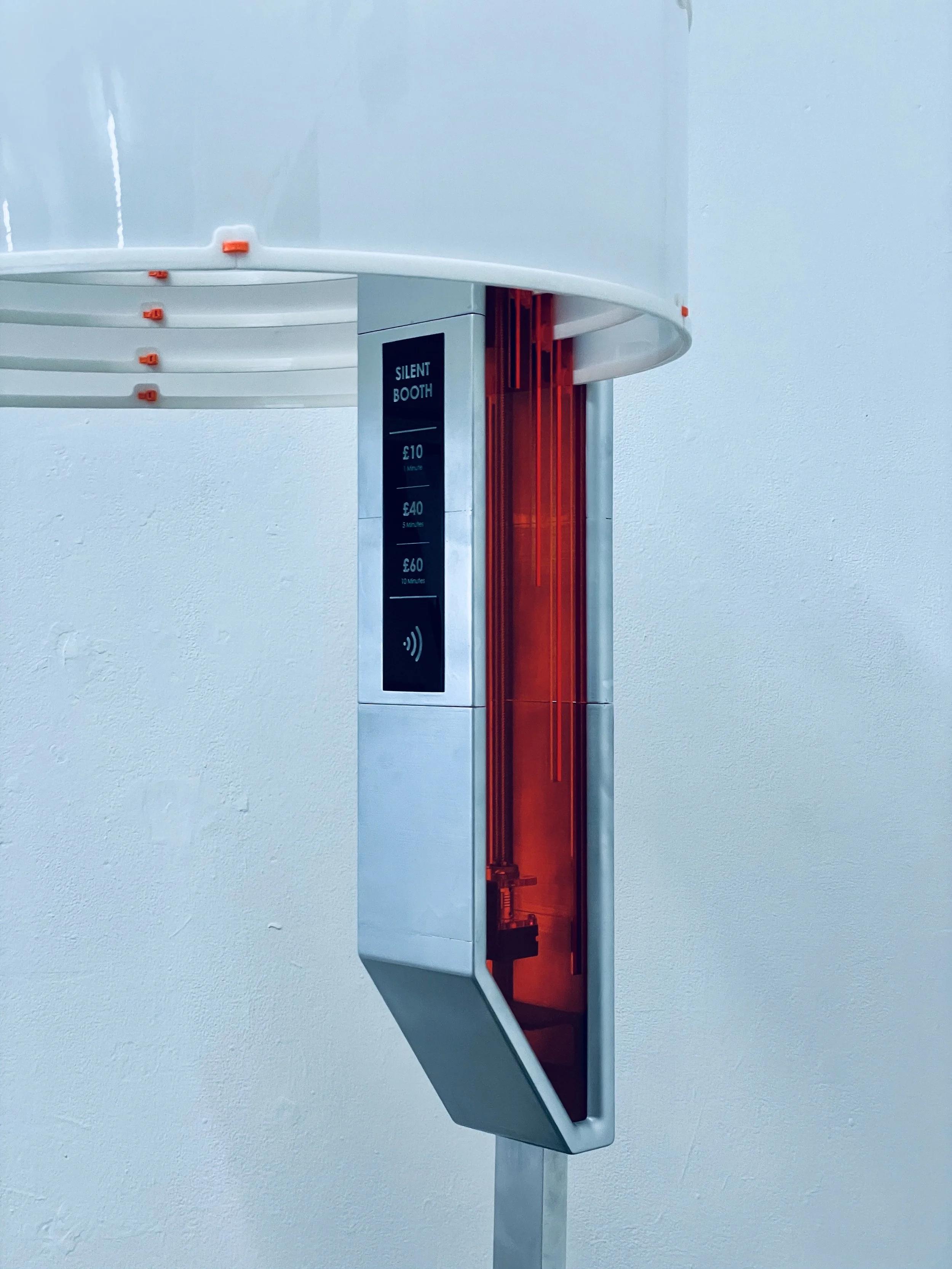Mental Order
Neural Implants
The neural implants interface directly with the brain in order to obtain consistent and reliable data, which will greatly improve the accuracy of data consolidation for Mental Score.
Through a omnipresent monitoring system, it explores the extent to which human mind can be measured, computed, and understood. It also examines the digital reductionism of human being through metrics and algorithms.
Mood Conditioner
By Incorporating neural implants and non-invasive drug delivery system, the Mood Conditioner is able to track the user’s body chemistry levels and administer medicine as needed to influence the user’s mental state.
Amidst the increasing prevalence of digital health trackers, it questions what are the standards for mood and body conditions? Is medication effective in mitigating mental distress? How can mental disorders be de-stigmatised? What is the extent to which life can be digitalised?
Hugging Chair
Transforming the unconscious behaviour of sitting backwards in a chair into a purposeful action, the Hugging Chair aims to externalise the human subconsciousness in order to re-create a sense of comfort through the act of hugging.
With the chair acting as an analogue for human, this aims to investigate the relationship between human and objects. How can objects dynamically engage with sensory perceptions? To what extent can objects simulate the interactions between people? Can objects replace human?
Silent Booth
In urban environment, there lacks critical infrastructure for people experiencing mental unease. The Silent Booth is to create spontaneous private spaces within public infrastructure which allow users to relax with reduced ambient light and noises.
In a society of meritocracy and individualism, this challenges the scapegoating of individuals on mental disorders by government and pharmaceutical industry. How can urban infrastructure be improved? To what extent can social responsibility be promoted?



